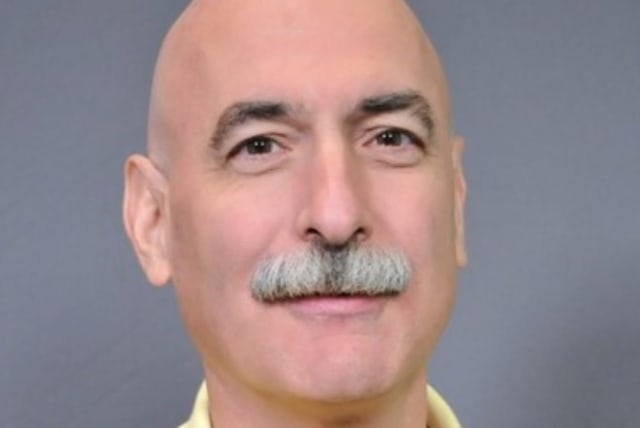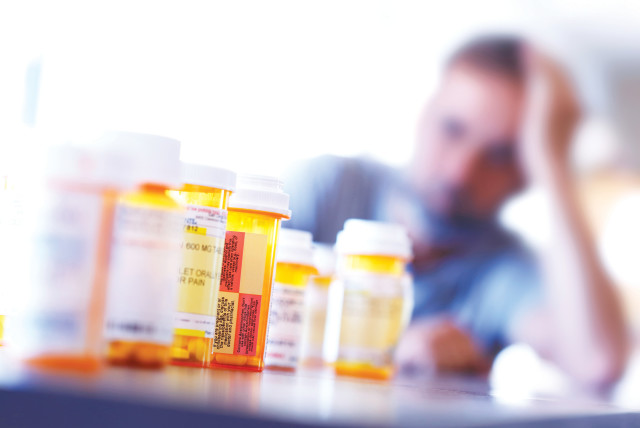Ketamine clinic may give those with depression new treatment

A new clinic has been opened in Israel which offers people with depression a revolutionary ketamine treatment that could erase their symptoms almost entirely.
Individuals suffering from depression may be able to find new hope in the form of an old drug known as ketamine through a private clinic called KetaMind which offers ketamine as a treatment for depression.
KetaMind was recently opened in Israel and founded by psychiatrist Dr. Stuart Seidman and emergency medicine specialist Prof. Michael Drescher.
Researchers in recent years began experimenting with ketamine as a possible treatment for depression after those who were diagnosed and received ketamine to treat unrelated conditions reported significant improvement in their mood and overall mental health. Studies from the US show that a series of ketamine treatments can reduce symptoms of depressive disorder in 70% of patients and symptoms can disappear almost entirely in around 50% of patients.
Such high success rates are uncommon in mental healthcare, and so researchers have also begun experimenting with the drug as a possible remedy for other conditions such as anxiety, obsessive-compulsive disorder (OCD), post-traumatic stress disorder (PTSD), and chronic pain. Studies have shown high success rates in these cases as well.
Ketamine is most commonly used as a dissociative anesthetic, however, it has also been used in place of morphine to treat acute pain and is a popular recreational drug. First formulated in the 1960s, ketamine is defined by the World Health Organization (WHO) as an essential drug for healthcare around the world.
Esketamine is an imperfect substitute for ketamine
Because ketamine is an older drug and its patent period has expired, it could not be submitted to the FDA for approval of its use as a treatment of mental health conditions. Despite this, there are currently over 1000 clinics in the US that offer ketamine to those with depression and other mental health concerns. This is done through the "off-label" method, in which doctors use a drug that was intended for specific usage to treat a completely different health concern.
In order to make ketamine treatment more accessible to those with depression, the American pharmaceutical company Janssen has developed a subtype of the drug called esketamine. It has been patented and approved for use as a mental health treatment in both the US and Israel. Esketamine is included in the Health Ministry's services baskets and can be obtained at clinics and psychiatric hospitals. Eskematine is administered through a nasal spray, as opposed to ketamine which is administered through intravenous infusion.
Despite its higher accessibility, there are a few problems with the use of esketamine as a substitute for ketamine. The waiting list to receive the drug can take several months, some patients prefer not to be treated in a hospital environment, and the nasal spray is less effective than the injection. The KetaMind clinic, which has already begun treating patients, maybe a strong alternative.
"The process is a little complex," explains Prof. Drescher, "in the USA, any doctor can use a drug approved by the FDA [American Food and Drug Administration] for any treatment, even to treat conditions different from the original use for which the drug was approved, without an additional regulatory process. In Israel, it is necessary to obtain individual approval from the Health Ministry for each of our patients suffering from depression, in order to help them with ketamine. Fortunately, the pharmacists at the Health Ministry are well aware of the suffering of the patients and even the risk of suicide for some of them, and cooperate with us by ensuring that we get approval for the use of ketamine for patients who need it."
Ketamine can save lives by reducing suicidal thoughts
Major depressive disorder is a severe mood disorder that causes feelings of despair and despondency. Other symptoms include insomnia, disordered eating, loss of motivation, anxiety, and irritability. Depression can be fatal as many people suffering from the disorder experience suicidal ideation. According to WHO, more than 700,000 people die from suicide every year worldwide and according to the Health Ministry, there were 6,859 suicide attempts and 428 suicides in Israel in 2019.
One of the most significant benefits of using ketamine as a treatment for depression is that it reduces suicidal thoughts in patients, sometimes even immediately after the administration of the drug. Suicidal thoughts and subsequent suicide attempts are often brought on by a momentary crisis and so if an individual experiencing suicidal ideation can make it through the dangerous moment the thoughts may pass. Even if the thoughts only pass temporarily and later return, a common pattern in cases of depression, it gives the person the chance to seek help and receive the necessary care. Ketamine could be a life-saving treatment.
While ketamine has the potential to be a game-changing drug in the world of mental healthcare, it is still important to note that it is not a magical cure. There are some who do not respond to the treatment, those who do respond might notice the benefits have weakened after a period of time, and it may require repeated usage to be effective. The good news is that ketamine is considered safe when used correctly and there are very few side effects.
The one notable side effect is anxiety and emotional distress caused by the experience of the treatment itself. Since ketamine is an anesthetic, patients enter a dreamlike state of consciousness immediately after the drug is administered. While some people find this state of mind pleasant or even euphoric, others may find it unsettling.
Doctors hypothesize that the positive results of ketamine are not caused by the patient's experience during the treatment itself but are instead due to changes that occur in the brain cells themselves. One theory is that it actually rewires the brain by stimulating the regrowth of synapses.
Jerusalem Post Store
`; document.getElementById("linkPremium").innerHTML = cont; var divWithLink = document.getElementById("premium-link"); if (divWithLink !== null && divWithLink !== 'undefined') { divWithLink.style.border = "solid 1px #cb0f3e"; divWithLink.style.textAlign = "center"; divWithLink.style.marginBottom = "15px"; divWithLink.style.marginTop = "15px"; divWithLink.style.width = "100%"; divWithLink.style.backgroundColor = "#122952"; divWithLink.style.color = "#ffffff"; divWithLink.style.lineHeight = "1.5"; } } (function (v, i) { });


